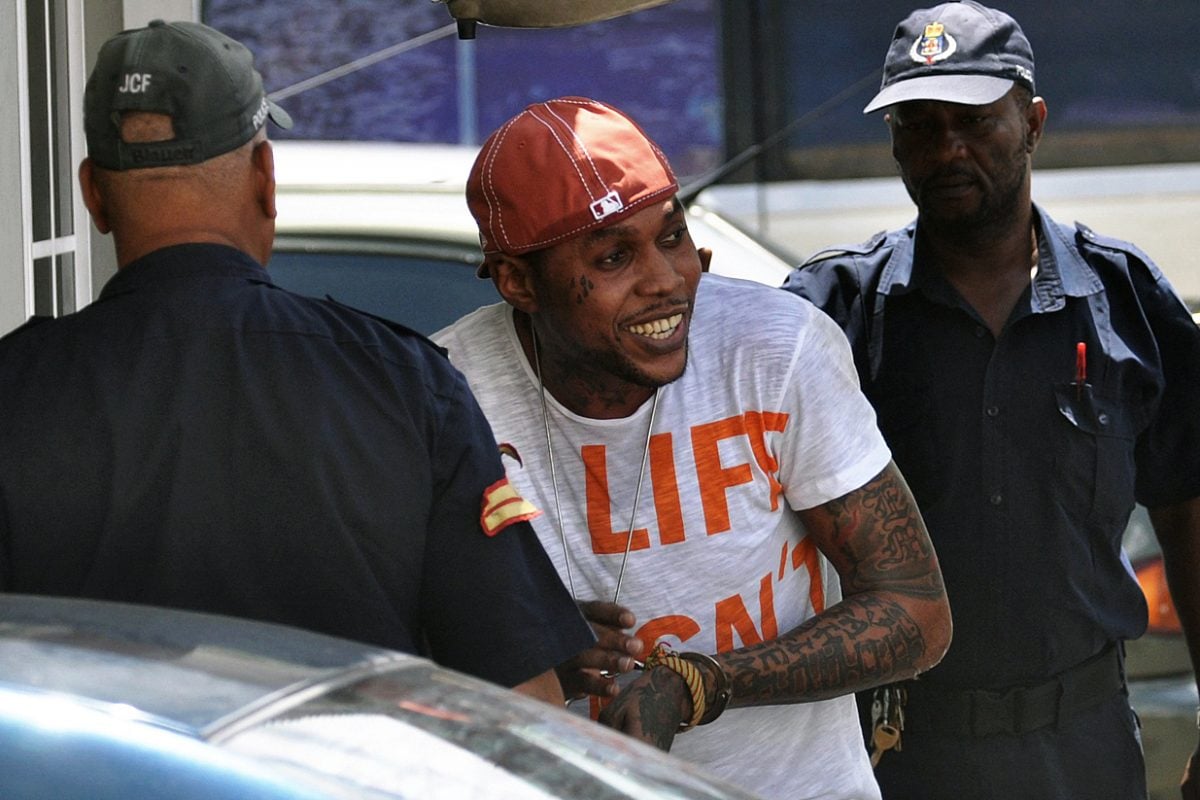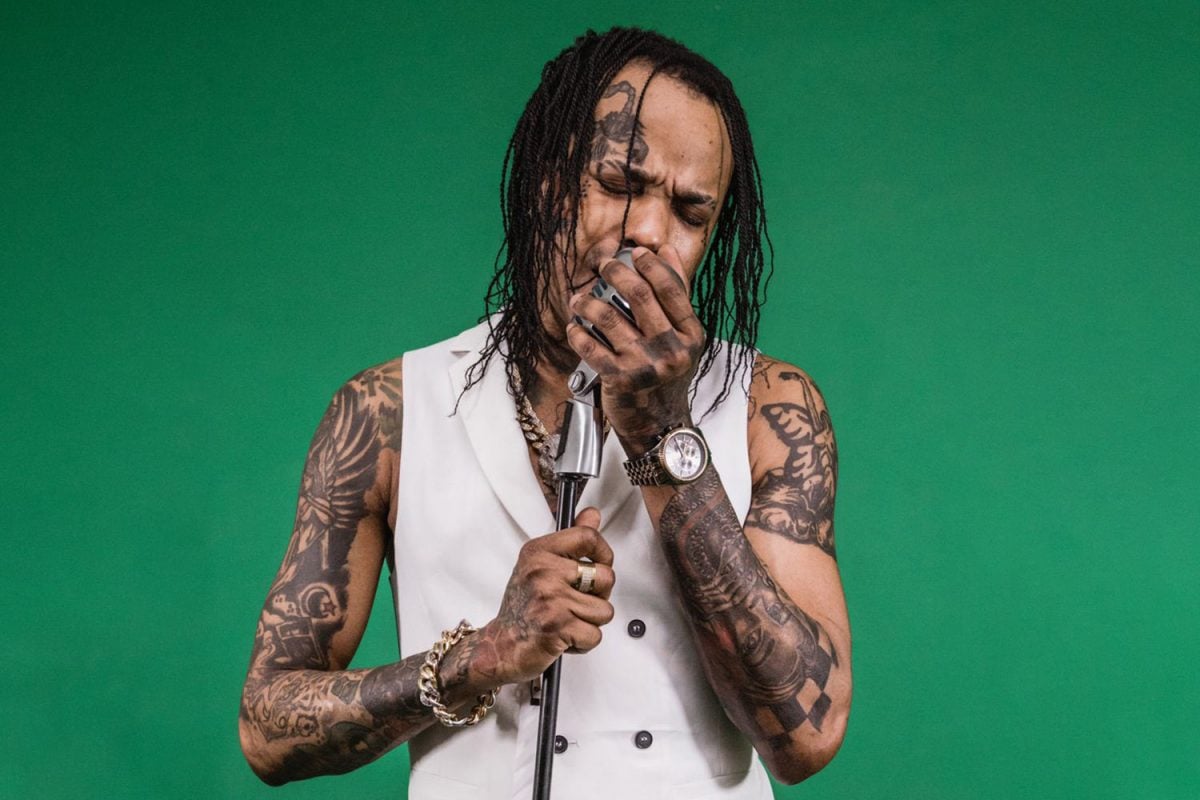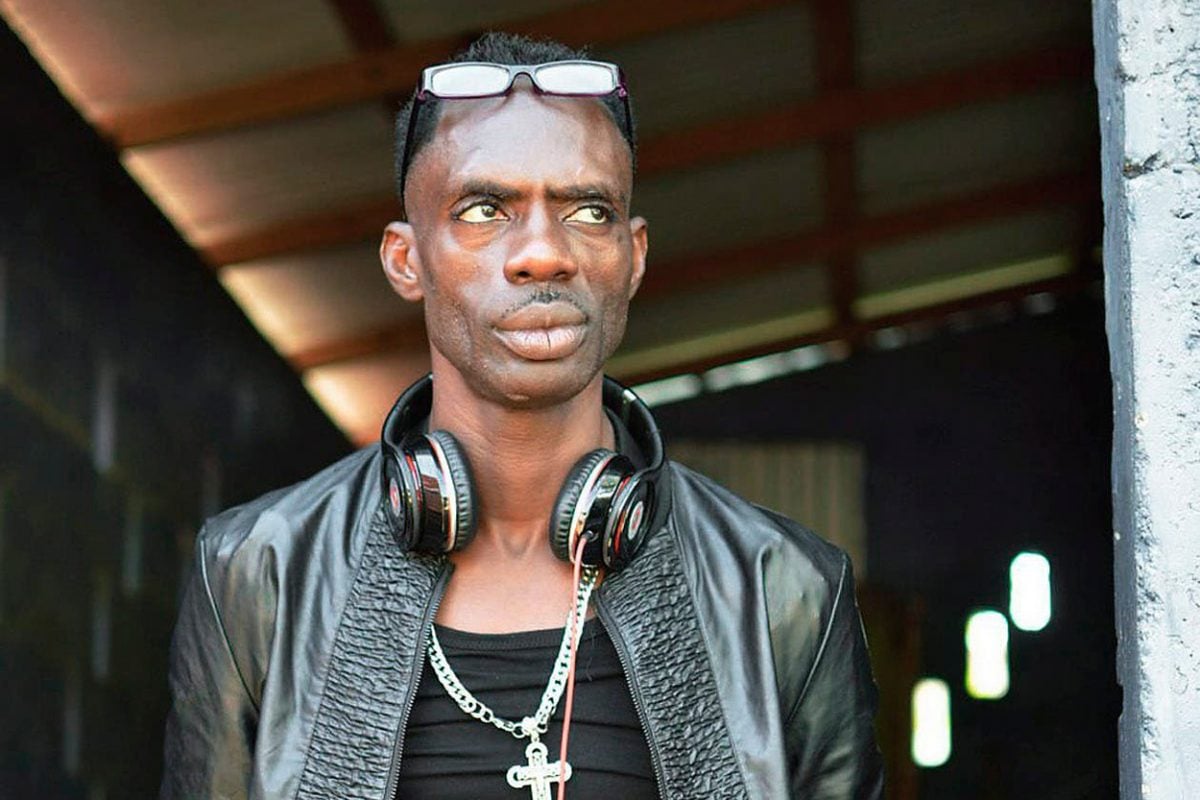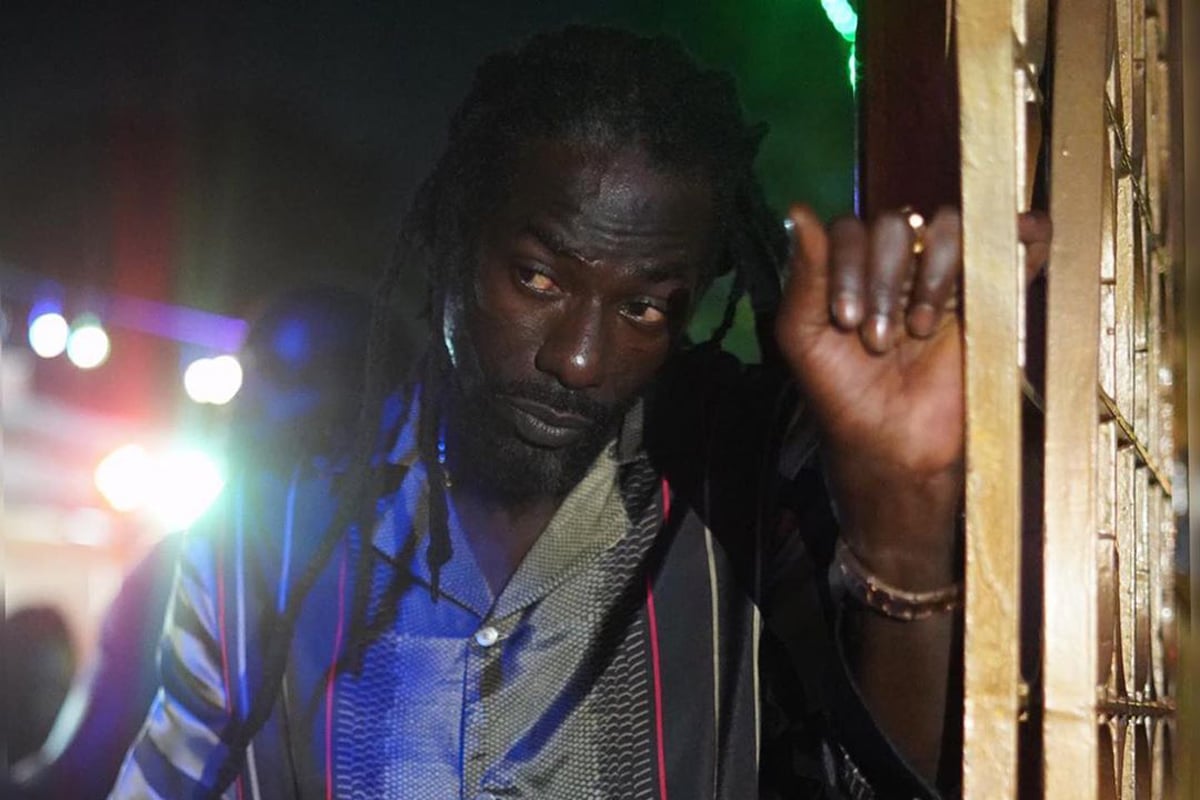Six Dancehall Artists Who Manifested Their Dire Fate Through Lyrics

Jamaica’s inner-city, plagued by gang violence and political division, has served as inspiration for Dancehall deejays to deliver lyrical content. Unfortunately for some, these lyrics seem to have mirrored real-life encounters that resulted in legal battles and imprisonment.
Here are 6 Dancehall artists who got the bitter end of the brunt.
Laden
Early in his career, Laden, whose stage moniker is a direct eponym of the deceased global terrorist Osama Bin Laden, rose to fame after reaching the top ten finals in a local talent competition. He was then musically nurtured by the popular producer, Stephen ‘Di Genius’ McGregor and gained traction with hits like Really Like You and Time to Shine.

Although Laden, whose real name is O’keefe Aarons, isn’t known for negative lyrics, his 2020 song Murder Rate sings of turning up the murder rate with lyrics, “murder straight, murder straight, a nuh volume, mi tun up di murder rate”.
It was in this same year Laden pleaded guilty to illegal possession of a firearm and ammunition, to which he was sentenced four years in prison with the eligibility of parole after a year. Interestingly, it was also in this same year that Laden released the Gregg Grindley-directed music video for his inspiring song, You Can Make It.
Tommy Lee Sparta
Leroy Russell’s stage name Tommy Lee Sparta, rings similar to the ancient military-land Sparta in Greece. The Montegonian who got his big break in 2012, is no stranger to having run-ins with law enforcement both in and outside of Jamaica. He is known for his list of hits including, Buss A Blank, Psycho, Spartan Soldier, Spartan Angel, Rich Badness, and his 2012 song Goat Head.
As his popularity grew, his artistry’s association with demonic lyrics and an altered demonic voice became synonymous with his brand. This lyrical presentation sparked his first encounter in 2014 with the law in Dominica, where he was not allowed to perform at a show and instead spent the night in detention lock up.

Among his most recent legal troubles, after pleading guilty and being sentenced to three years in prison for an illegal gun and ammunition, is the ballistics report of said gun being associated with two murders. His song Shook with the lyrics, “mi nuh care where yuh come from shook, somebody head affi guh open like book, when mi walk inna yuh place and shot out yuh face”, hits close to home for the artist.
In 2015, Tommy Lee released the Dillinger produced Redemption Song to the delight of critics, revealing an emotional side that fans weren’t accustomed to hearing. The lyrics “put on my pants, my shoes, my shirt, Sunday morning di fuss man deh inna church”, blatantly contradicting years of his stage persona.
Ninjaman
Desmond Ballentine is the talented and iconic toaster once known as ‘double ugly’. His prolific career began at age 14 before renaming to ‘Ninjaman’. Throughout his entire career, Ninjaman’s recordings have become tantamount with violent gun attacks, murders and burials with songs Murder Dem, Kill Dem and Done, My weapon, Out Pon Bail, Warning You Now and Gunman.

In 1993, his heavily laced gun-related content resulted in him losing the opportunity to perform at popular events. Four years later a new artist emerged as Brother Desmond with gospel music.
Twelve years after his conversion to Christianity, Ninjaman was arrested and charged with murder. In 2017, he was sentenced to life in prison for said murder.
Shawn Storm
Shawn Storm’s breakthrough song Ghetto Youths Be Wise, on the Remand Riddim reflects as a message to the inner city youth to keep alert of their surroundings and the persons in it. His next release came from the Birthday Riddim, Affi Fight an inspiring poetic delivery of a ghetto youth’s true story. Shawn is heard singjaying emotionally with words “ghetto youths mi nah lef mi Bible”, he continues, “everyday inna di road is like tings a get tougher, di youths dem want a work but tell mi where dem a guh go sah?” Echoing the harsh realities of the inner-city.
Shawn Storm’s career started to blossom in 2009 while he released mixtapes showcasing his lyrical styles. The 2009 release of “Mek Dem Mumma Bawl”, the deejay is heard singing, “mek dem mumma bawl inna funeral, but all she a bawl to badman that’s okay, from mi a likkle yute mi a walk and shoot people with something tall”, leaves little to the imagination.

Just as Shawn Storm, whose real name is Shawn Campbell, started to receive international recognition for his smash hit ‘My Life’, produced by his mentor Vybz Kartel on the Addijaheim label, his reputation started to tarnish. ‘My Life’ is a touching song about Shawn’s work ethic and the persistent mentality he has towards reaching his life’s goals. The song went to #1 in several countries and his demand within the industry grew. It was also in this period that the police listed the artist as a person of interest for several crimes. The deejay turned himself in and the matter was shortly brought before the court. After the longest trial in Jamaica’s history, Shawn was sentenced to life in prison for murder, alongside his mentor Vybz Kartel.
Vybz Kartel
The success of Vybz Kartel’s career has been met with several headlining controversies including; physical confrontations with other artists, lyrical feuds that caused national debates, and an arrest for charges of more than one murder.
In one of his most inspiring releases, Unstoppable from his January 2015 album Viking, a Journal confessional, the artist sends a profound message to the youth about their dreams, goals and having a solid plan to achieve them.
In the song, he has literally brought these words to life. “From mi a likkle youth mi tell myself me have a plan, mi wah famous like Ninjaman, mi wah big like Buju Banton.” Standing as a living testament of a childhood dream becoming a reality, in more ways than one. Kartel also states in this very song, “every man have a dream and a nightmare, everyday can’t be the same”, indicative of end results becoming unfavorable, as it did for him.

In the 2008 song Court Case from the album Teacha’s back, Kartel deejays these lyrics “Memba when mi roll up inna di court 6:15 fi my case, full Versace, from the suit, Versace boot, Versace lace. He continues, “It’s like a presidential race, di mount a people inna di place, mi see di whole a Waterford, and Southside and Spanish Town crazy face”. Further in the song he deejays, “she seh listen, the officer dem a charge you for possession of a weapon, plus the ammunition, that’s another felon, plus yuh wanted in connection to a murder”.
Just 6 years after the release of ‘Court Case’, on April 3, 2014, Vybz Kartel was sentenced to life in prison for the murder of a former crony. He will be eligible for parole in 2046.
Buju Banton
He is the multi-award-winning, record-breaking Reggae hero known as ‘the Gargamel’, a name he acquired at the age of 12. As a child Mark Myrie, known as Buju Banton, would watch his favorite Jamaican deejays in hopes of one day becoming just like them. At the age of 14, the committed young deejay was already working with the successful music producers Winston Riley and Bunny Lee. Five years later, the chart-topping hits ‘Love Me Browning’ and ‘Bogle’ turned the 19 year old into a bona fide star.
In the same year, he rose to fame, the lyrics of Boom Bye Bye, a song he recorded almost 6 years prior, all but ended his career. Far from his musical counterparts on this list, Buju Banton received immense success in 1993 with his song Murderer, which denounced gun behavio r and violence. The release of this song was so influential, it sparked a change in the type of lyrical content that was played in some clubs and dancehall spaces.

While Myrie enjoyed the success of transitioning from a dancehall star to a highly respected Rastafarian musical poet in the late 1990s, a myriad of international hits followed. Memorable recordings include, Destiny, Hills and Valleys, Wanna Be Loved and Untold Stories. All recordings were inspirational, socially conscious, and positively moving productions that are still played to this day.
In the year 2009, just 3 years after releasing the commercially successful single Driver, Mark Myrie was remanded and charged with the possession of and conspiracy to distribute cocaine. Some of the lyrics to his song Driver are as follows, “a pounds dem a buy when a tones man a ship, green like grass, brown like chocolate, FedEx or UPS a mek several trips”. The song also says, “Doh deliver it ago end drastic, a barrel gun mi buss and yuh know it can’t stick”.
Two years after being charged, Buju was found guilty of cocaine trafficking and sentenced to 10 years and one month in prison.
Buju served his prison sentence in McRae Correctional Institute. His return to Jamaica was met with overjoyed crowds and welcoming cheers. Soon after, his Long Walk To Freedom concert held at the National Stadium saw over 30,000 patrons in full support of his musical catalogue.
